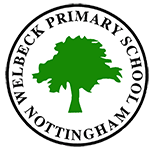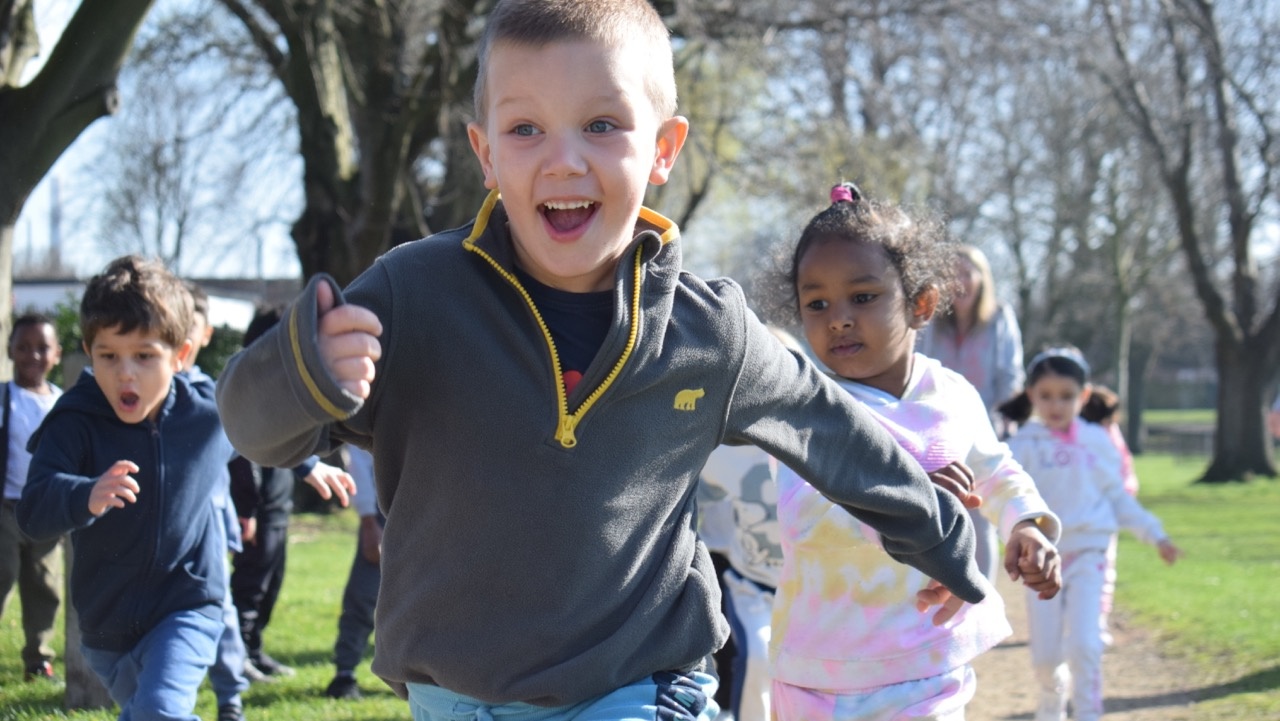Foundation Stage (objectives in bold type are taken directly from the Early Learning Goals)
Children learn to:
Speak and listen for a wide range of purposes in different contexts
1. Speaking
- enjoy listening to and using spoken and written language and readily turn to it in play and learning
- speak clearly and audibly with confidence and control and show awareness of the listener, for example by their use of conventions such as greetings, ‘please’ and ‘thank you’
- extend their vocabulary, exploring the meanings and sounds of new words
2. Listening and Responding
- listen with enjoyment and respond to stories, songs and other music, rhymes and poems and make up their own stories, songs, rhymes and poems
- sustain attentive listening, responding to what they have heard by relevant comments, questions or actions
3. Group discussion and interaction
- interact with others, negotiating plans and activities and taking turns in conversation
- use talk to organise, sequence and clarify thinking, ideas, feelings and events
4. Drama
- use language to imagine and recreate roles and experiences
Read a wide range of texts on screen and on paper
- 5. Word reading skills and strategies
- link sounds to letters, naming and sounding the letters of the alphabet.
- explore and experiment with sounds, words and texts
- hear and say sounds in words in the order in which they occur
- blend letters to read CVC words and recognise common digraphs
- use their phonic knowledge to read simple regular words and make phonetically plausible attempts at longer or more complex words
- read a range of familiar and common words and simple sentences independently
6. Understanding and interpreting texts
- know that print carries meaning and, in English, is read from left to right and top to bottom
- show an understanding of the elements of stories, such as main character, sequence of events, and openings, and how information can be found in non-fiction texts to answer questions about where, who, why and how
- retell narratives in the correct sequence, drawing on the language patterns of stories
- 7. Engaging with and responding to texts
- return to favourite books, songs, rhymes to be reread and enjoyed
- listen with enjoyment to stories, songs, rhymes and poems and sustains attentive listening
- show an understanding of the elements of stories, such as main character, sequence of events, and openings and how information can be found in non-fiction texts to answer questions about where, who, why and how
- use language and play to imagine and recreate roles and stories
- respond to stories, songs, rhymes and poems with relevant comments, questions or actions
Write a wide range of texts on paper and on screen
- 8. Creating and shaping texts
- attempt writing for various purposes, using features of different forms such as lists, stories and instructions
- 9. Text structure and organisation
- attempt writing for various purposes, using features of different forms such as lists, stories and instructions
- 10. Sentence structure and punctuation
- write their own names and other things such as labels and captions and begin to form simple sentences sometimes using punctuation
11. Word structure and spelling
- link sounds to letters naming and sounding the letters of the alphabet
- hear and say sounds in words in the order in which they occur
- use their phonic knowledge to write simple regular words and make phonetically plausible attempts at more complex words
12. Presentation
- use a pencil and hold it effectively to form recognisable letters, most of which are correctly formed

